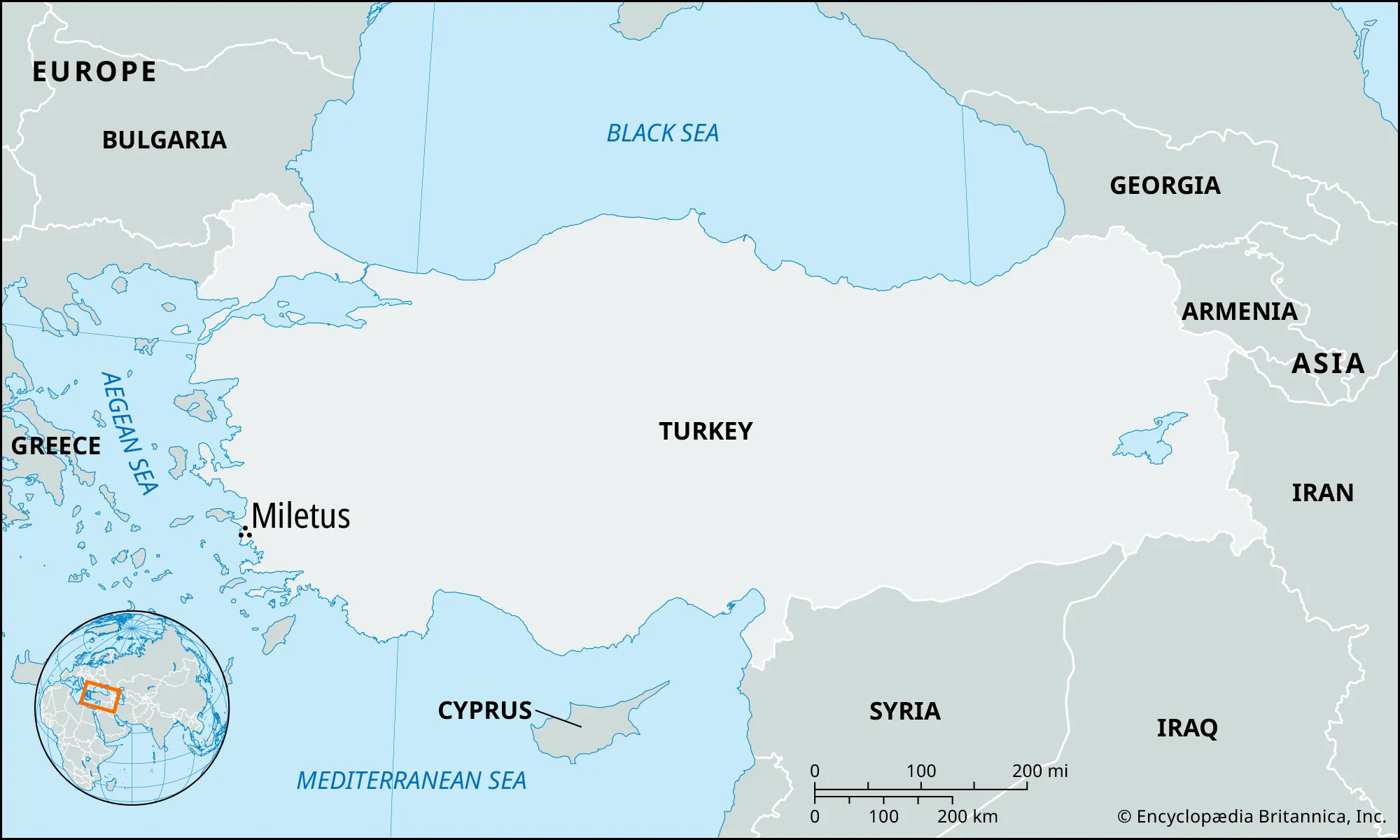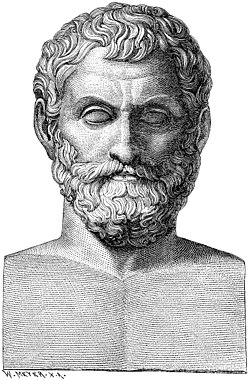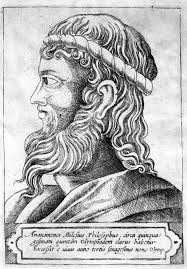Milesian School
1/7
There's no tags or description
Looks like no tags are added yet.
Name | Mastery | Learn | Test | Matching | Spaced |
|---|
No study sessions yet.
8 Terms
Location of School
Miletus, along the border of Anatolia (Turkey)

Pre-Socratic ‘Physiologist’
Physis (nature) + logos (wisdom). Rational account of nature.

Arche
The origin or substance which everything is made of, translations include “First Principle, Origin, Source, Beginning, Ruler.” They believed that Arche was alive, divine, intelligent, and guided all things by its own existence. They witnessed it as a ‘self sustaining’ existence.
Hylozoism
The idea that matter is imbed with life, intelligence, and divinity.

Thales of Miletus (624-546 B.C.)
The first ever western philosopher, he purposed that Arche was made of water. He is one of the Seven Sages, and is also to have believed that the earth floated on water. Because he was Hylozoist he believed that the Arche water was not simply normal, but divine, alive, and intelligent.

Anaximander of Miletus (610-546 B.C.)
Following Thales, Anaximander concluded that since Air, Earth, Fire, and Water are limited, and Arche must be unlimited, that water cannot be Arche; therefore Thales was wrong in his belief. He concluded that everything was made of a substance called “Apeiron” (see Apeiron)
Apeiron
A (absence) + peras (limit) = Apeiron; Absence of Limit, the Unlimited.
Unlike Thales, Anaximander claimed the single element was actually an undefined, unlimited, and indefinite substance, known as apeiron. From this, opposites like moist and dry and cold and hot separated from each other.

Anaximenes of Milesian (585-528 B.C.)
The last important pre-Socratic philosopher of the Milesian school, who believed the arche element was air. Air is everywhere and has the ability to undergo processes and become transformed into other things, such as water through condensation, and air through boiling. Therefore, he concluded that this could be applied to the others.